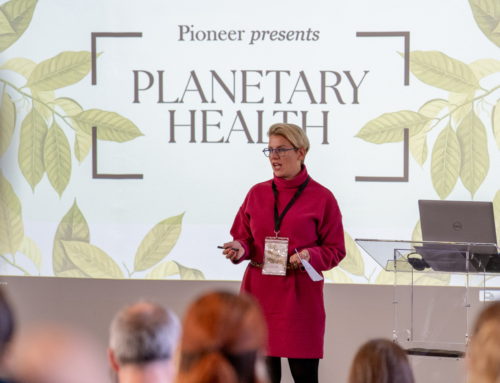Today, Monday the 8th of March, countries around the world are marking International Women’s Day. A focal point within the women’s rights movement for celebrating the social, economic, cultural and political achievements of women across the globe. The day also presents the opportunity to accelerate gender parity by way of six core missions. And it is here that Anna Maxwell is not only blazing a trail to achieve one of IWD’s core missions, ‘To assist women to be in a position of power to make informed decisions about their health’, but also in challenging (the theme for IWD 2021) the way in which we all access healthcare services and our approach to self-care.
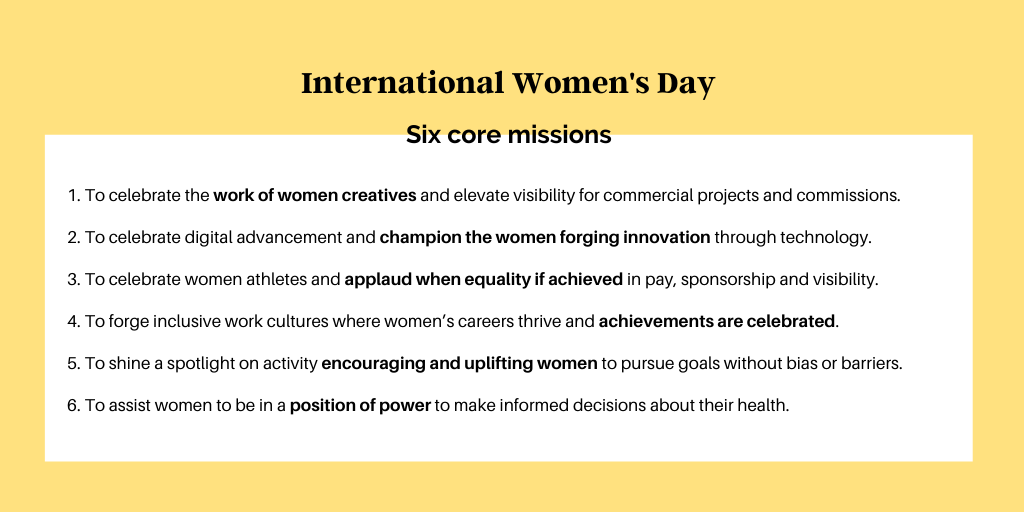
Maxwell is the CEO and founder of Maxwellia. The world’s first dedicated ‘switching’ company, which converts prescription medicines to over-the-counter consumer products. Part of the Pioneer Group Investment Portfolio, Maxwellia are also the creators of one of the first contraceptive pills which could be available in pharmacies without prescription.
Named Lovima®, Maxwellia’s daily progestogen-only pill (POP) recently hit the news when the MHRA launched a Public Consultation on the drug’s reclassification. The Lovima® and Hana® pills, the latter produced by Laboratoire HRA Pharma, are a new version of the trusted’ mini pill’, containing a specific type of progestogen called desogestrel which can prevent pregnancy by stopping ovulation and if approved, Lovima & Hana will be available to buy from the pharmacist.
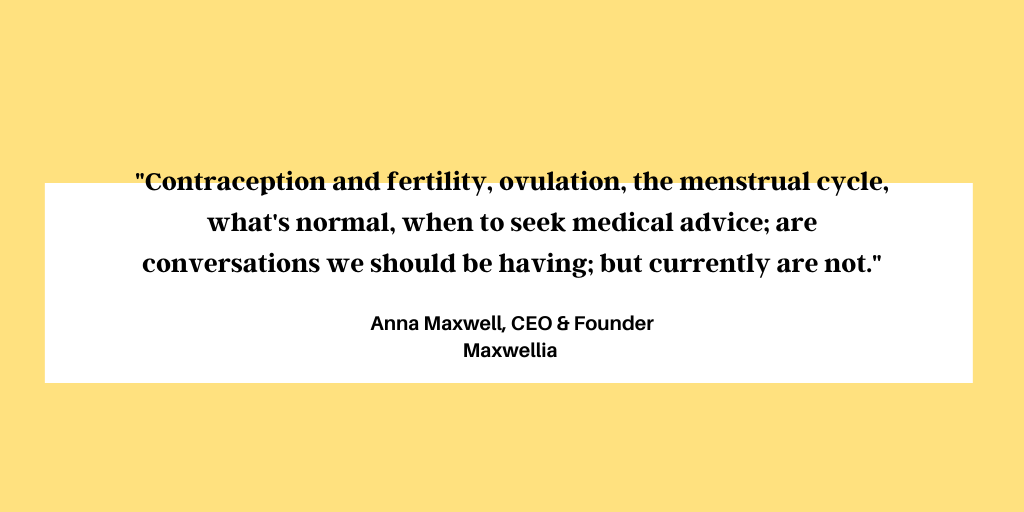
The impact of which can be seen in the Better for Women report by the Royal College of Obstetricians and Gynaecologists. Published in 2020, the report found that over a third (37%) of women cannot access the contraceptive services they need. A complex issue, Maxwell attributes to fragmented commissioning and funding cuts which led to the reduction of sexual health service budgets by 25% between 2014/15 and 2019/20. A move that Maxwell believes has led to a healthcare delivery that is not shaped by the needs of contemporary women.
A PLATFORM FOR EDUCATION AND COMMUNICATION.
An over-the-counter contraceptive is not just about creating additional pathways for women, Maxwell points out, but creating new pathways to women. And with that, the opportunity to increase the dialogue around women’s health.
“More information must be available, particularly for young women, about their reproductive health and the choices available to them in managing their own wellbeing.”
“Contraception and fertility, ovulation, the menstrual cycle, what’s normal, when to seek medical advice; are conversations we should be having; but currently are not.”
Through marketing and specifically social media, Maxwellia intends to talk directly to women and provide the information they need to take charge of their health and contraceptive self-care confidently. Maxwell points to two recent reports which call for urgent intervention. The All-Party Parliamentary Group on Sexual and Reproductive Health’s 2020 report, ‘Women’s Lives, Women’s Rights: Strengthening Access to Contraception Beyond the Covid-19 Pandemic’ reported that almost half (45%) of pregnancies and one third of births in England are unplanned, costing the NHS £240m every year. Despite a decline in the overall teenage pregnancy rate over the last decade, England remains the country with the highest rate in Western Europe, as reported in the Faculty of Sexual and Reproductive Healthcare in June 2020.
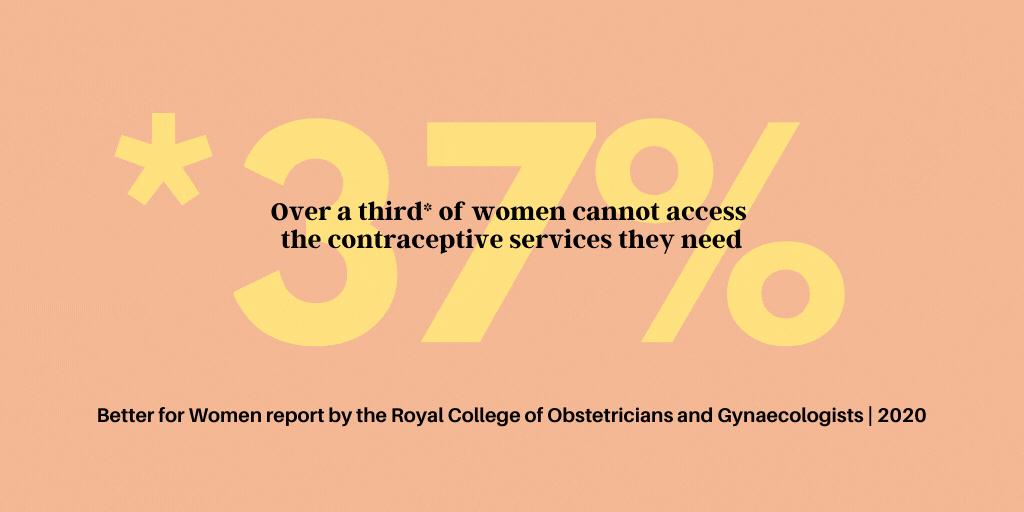
“As a prescription-only medicine, information about the progestogen-only pill (POP), its uses, benefits and additional therapeutic applications aren’t openly discussed in the public domain. Switching from prescription-only to an over-the-counter consumer healthcare product gives the Pill visibility as an option. We can communicate for the first time; this is what the drug does, how it works, and its use. In easy-to-understand, user-focused information.”
An over-the-counter (OTC) POP remains a polarising issue. The announcement of a public consultation by the MHRA (the results of which are yet to be announced at the time of writing) was met with both enthusiasm and scepticism. Anti-contraceptive religious rhetoric, fears over NHS privatisation and concerns that high RRPs will exclude many women on low incomes. Fears, Maxwell is keen to make clear, are unfounded.
“This is about creating additional routes to access self-care health services. As we get further along, it’s more and more clear to me the impact that we could have on women’s lives. We want to offer convenient and easy access to contraception to support women in their everyday lifestyle choices.
CHALLENGING THE TRADITIONAL APPROACH.
Maxwell is challenging more than contraceptive provision. The POP is the first of many drugs in Maxwellia’s pipeline. In switching select prescription-only products to over-the-counter, Maxwell is challenging the role pharmacies play, how we engage with the NHS and an amplification of choice, control and self-care. A move which, Maxwell believes, is now crucial.
“The need for self-care has always been there, but the COVID-19 pandemic has brought about a seismic shift in the way we approach and access NHS services. We are all aware that the NHS is struggling and cannot take the strain. Too many people wait too long to see a doctor, whether that’s because of not wanting to ‘bother the doctor’, the hassle and inconvenience, or not being able to get an appointment at all. The patient suffers unnecessarily. The time and treatment costs are far greater for the NHS compared to early intervention treatment.”
Via an increased number of switched drugs (well-known previous switches include Imodium, Viagra Connect, and Nicorette), Maxwellia aim to bolster pharmacies as a destination for those seeking non-urgent medical care. Where people seek advice and, after consultation, access previously prescription-only medications. Lessening the burden upon GPs and increasing the opportunity and thereby the likelihood of seeking advice and medical intervention.
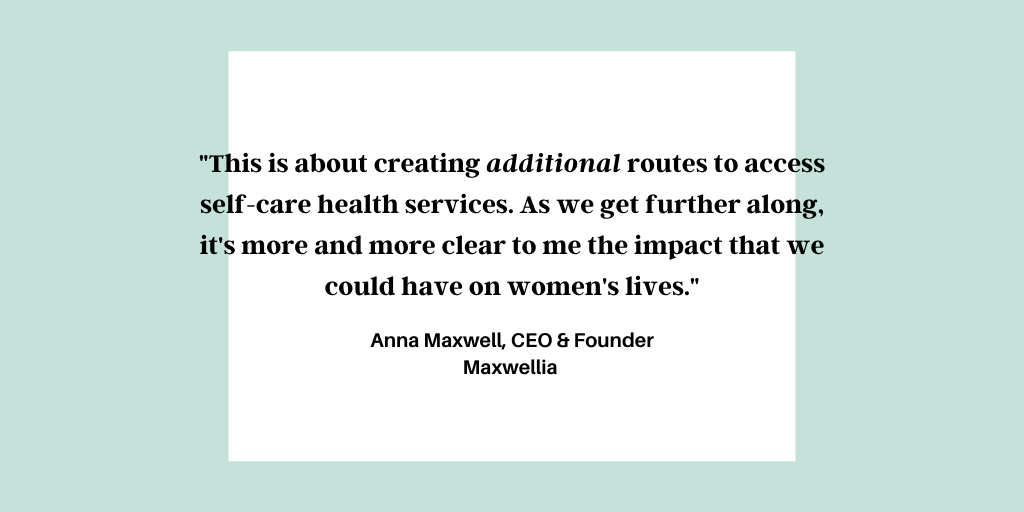
The need may be greater than ever before, but switching is an area Maxwell has been driving forward throughout her career. From retail pharmacist to senior marketing roles with leading consumer brands, Maxwell has been at the forefront of switching. Advocating for increased self-care and inadvertently laying the groundwork for what Maxwellia would become.
In 2013, frustrated at the slow pace, she founded Maxwellia, an independent pharmaceutical company dedicated to widening access to medicines to improve the shape of public health and make a difference in peoples’ lives.
“Part of my first buying job was to identify medications which would be ideal for switching from prescription-only to OTC. That list is no secret and never has been.
“Unfortunately, priorities can be different, and you’re at the mercy of someone else’s agenda. That list still exists, and many of those products are still prescription only. I was frustrated and decided to go it alone and built a team and venture company to make it happen.”




